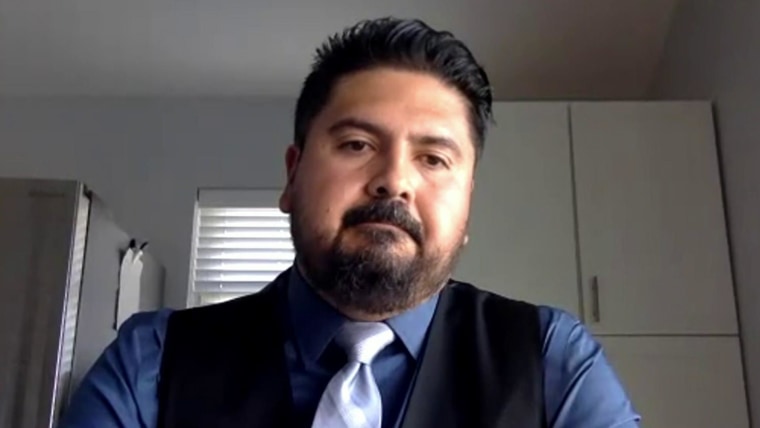As Texas thaws from a winter storm that left customers with sky-high electricity bills, state and federal lawmakers are rushing to find a way to make up for the costs. With customers owing billions of dollars, it is unclear who will be left holding the bag.
"We're all going to pay for it some way, meaning taxpayers, shareholders or customers," said Michael Webber, a professor of energy resources at the University of Texas at Austin. "But it'll take a few months for details to shake out."
Gov. Greg Abbott announced last weekend that the state's Public Utility Commission had put a moratorium on customer disconnections for nonpayment to address the exorbitant bills, and he has met with legislators about how the state can help reduce the electricity cost burden on consumers.
President Joe Biden approved a major disaster declaration for Texas last week, which will provide federal assistance for temporary housing and home repairs. Rep. Michael McCaul, R-Texas, told CNN over the weekend that the plan is to use federal assistance for building damage and to cover the cost of electricity bills.
San Antonio Mayor Ron Nirenberg said Sunday in an interview on CNN that there will be "hell to pay" if residents are expected to front the bill for skyrocketing electricity costs.
"It would be unconscionable for bills to go up and for bills to be put on the backs of residents of the state that have been suffering and freezing in their homes for the last week, through no fault of their own," Nirenberg said.
As temperatures dropped below freezing, demand for electricity spiked, pushing up wholesale power prices to $9,000 per megawatt-hour. Typically, the seasonal average is $50 per megawatt-hour. The Electric Reliability Council of Texas, or ERCOT, which manages power for about 90 percent of the state's electric load, and the state's electricity generators were unprepared for the icy storm. They were unable to produce energy to meet demand — a critical part of what makes Texas' free market electricity grid function.
Electricity bills for Texans who chose a rate plan that changes with wholesale prices ticked up by more than 10 times. Royce Pierce, who owns a three-bedroom home in Willow Park, west of Fort Worth, said his monthly electricity bill hit $17,300. Typically, it is about $150 a month. Last week, his wife closed the account, which is auto-billed by Griddy, a wholesale electricity provider, because it had been wiped out, Pierce said.
"I emailed them and said: 'I can't afford this. What do I need to do? What are we able to do?'" he said. "We have teenage kids, and we still have other expenses."
In Texas, maximum wholesale electricity prices are used in "extreme scarcity conditions" to encourage generators to produce more power, according to the state Public Utility Commission. The prices are paid by wholesale buyers and generators who did not purchase power ahead of time to hedge their risks, which acts as a penalty for generators who fail to produce power. But in last week's winter storm, those prices were passed down to consumers.
"A lot of conservative economists will say: 'That is good. We want discipline, ease of entry, ease of exit.' If someone is not well-hedged, they don't belong in the market," said Jay Zarnikau, the former director of electric utility regulation with the Public Utility Commission. "On the other hand, you have two large competitors, and they'll probably survive as the smaller retailers who run into problems go out of business — so you're going to have more concentration."
Dramatic spikes in electricity prices have already driven about 20 companies into bankruptcy over the last two decades, leaving a handful of dominant players, including NRG Energy and Vistra, said Zarnikau, who is now an economist at the University of Texas at Austin Lyndon B. Johnson School of Public Affairs.
Over the last few days, the Canadian energy retailer Just Energy said it might run into trouble covering about $250 million in weather-related costs from the storm. Atmos Energy Corp., based in Dallas, said it is considering raising cash after it spent as much as $3.5 billion to buy fuel during the storm.
"Absolutely, some companies will go bankrupt," said Edward Hirs, an energy fellow at the University of Houston. "Some consumers will be disadvantaged, because they will have to move to providers that cost more — and trust me, they're just waiting for them."
As Texans patch up bursting water pipes and mourn dozens of deaths, people on the ground are not sure when help for their mounting bills will arrive. Amanda Powell, a lawyer with Lone Star Legal Aid, said the nonprofit firm is focused on providing accurate information to residents who might file for assistance from the Federal Emergency Management Agency to cover damage to their homes.
"We're going to have to see if they're going to provide some utility assistance," Powell said. "As far as the answer to what is going to happen, we just don't know. I've never seen anything like this."
Four ERCOT board members said Tuesday that they intend to resign. The board's chairwoman and vice chairman, along with two other board members, issued a joint statement saying their decision was intended "to allow state leaders a free hand with future direction and to eliminate distractions."
"electric" - Google News
February 24, 2021 at 07:14AM
https://ift.tt/3klRSIT
Who's really left holding the bag for those sky-high electricity bills in Texas? - NBC News
"electric" - Google News
https://ift.tt/2yk35WT
https://ift.tt/2YsSbsy
Bagikan Berita Ini















0 Response to "Who's really left holding the bag for those sky-high electricity bills in Texas? - NBC News"
Post a Comment